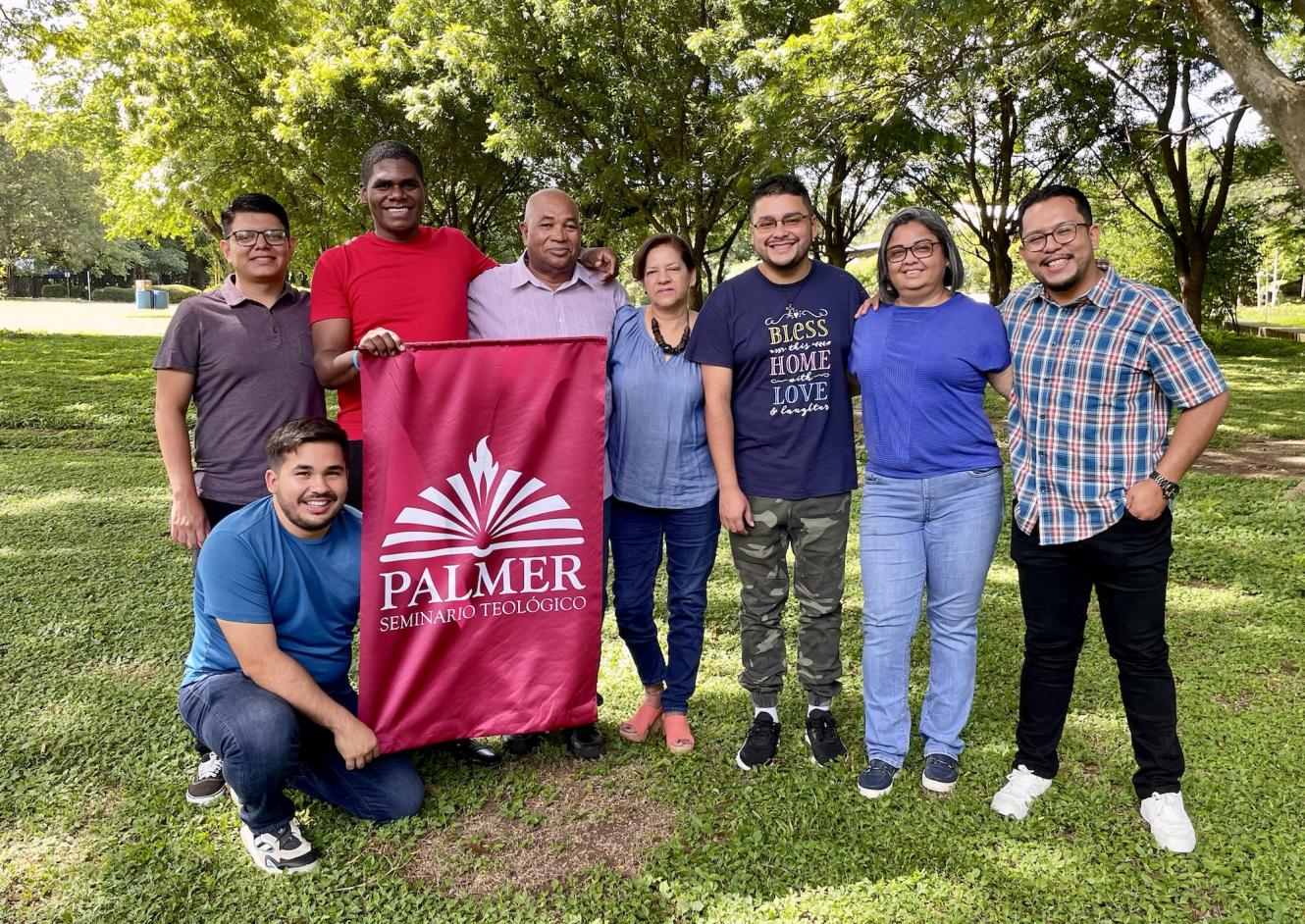
This year, Palmer Theological Seminary celebrates 100 years of serving the Christian community and reaching thousands for Christ. Above all, this service has centered on the academic formation of leaders who make a lasting impact in their communities. And since 2016, this commitment has extended to the Latino community, when Palmer opened its doors virtually to ministers from all across the American continent.
The first cohort began in Mexico City in 2016. That same year, a cohort was launched in the United States, followed by others in Mexicali (Mexico), São Paulo (Brazil), and Bolivia. Today, the program includes cohorts in many more Latin American countries, such as Ecuador, El Salvador, and the Dominican Republic, as well as in various regions across the United States. In total, 27 cohorts have been formed: 9 in the U.S. and 18 internationally, reflecting the growing reach of this initiative.
Personally, I don’t think the visionaries who launched this project could have fully imagined the magnitude of the impact this program would have on the Latino community. Earning a master’s degree is already an almost unreachable dream for many Latino Christian leaders — pastors, missionaries, ministry workers, and others — and now having access to a Master of Theological Studies that is affordable, flexible in schedule, rich in resources, and led by committed faculty, truly feels like a dream come true.
Thanks to my role within the institution, I’ve had the opportunity to speak with many alumni of the program. The general feeling is one of deep gratitude and transformation: it has been a blessing, an eye-opener, an awakening. Many express how their vision has been expanded, how much they’ve realized they didn’t know about their own faith, and how useful the tools gained through this program have been. Today, they can share the gospel in a more profound and responsible way — and many are now equipping others to do the same.
Latino theologians have been formed! And believe me, they have much to offer. While their legacy is often transmitted more through practice and oral tradition than through books, theses, or articles, I am convinced that their contribution to Latino theology is just as valuable, if not more than that of the authors we are used to reading. Because Latino theology is now being born from the community itself, from the heart and worldview of the Latin American people.
I especially want to highlight the participation of women in this program. Time and again, they prove to be the most attuned voices to the needs of their communities. Some are training other women, including indigenous women, while others are ministering to children, youth, and migrants, making a tangible and lasting impact in society. It is their hands, charisma, humility, and sensitivity that touch hearts and serve those who are most vulnerable, forgotten, and unprotected.
Although 239 people have graduated, and 60 more are currently in formation, the true impact is counted in thousands of lives touched, thanks to God’s vision placed in the hearts of men and women willing to listen to the Spirit’s guidance and carry out His mission.
To God be the glory! For such a beautiful demonstration of love to His Latino people, allowing them to be equipped and continue serving Him with joy and purpose.
Palmer en la Misión: Un siglo formando líderes que transforman
Este año, el Seminario Palmer celebra 100 años al servicio de la comunidad cristiana, alcanzando a miles para Cristo. Este servicio se centra, sobre todo, en la formación académica de líderes que impactan en sus comunidades. Y desde el año 2016, este compromiso ha alcanzado también a la comunidad latina, cuando Palmer abrió sus puertas en modalidad virtual a obreros de todas partes del continente americano.
La primera cohorte comenzó en la Ciudad de México en 2016. Ese mismo año se inició también en Estados Unidos, y en los años siguientes se sumaron Mexicali (México), São Paulo (Brasil) y Bolivia. Hoy en día, el programa cuenta con cohortes en muchos más países de Latinoamérica, como Ecuador, El Salvador, República Dominicana, entre otros, y en diversas regiones de Estados Unidos. En total, se han formado 27 cohortes: 9 en Estados Unidos y 18 internacionales, reflejando el alcance creciente de esta iniciativa.
Personalmente, no creo que los visionarios de este proyecto puedan dimensionar la magnitud del impacto que esta apertura ha tenido sobre la comunidad latina. Una maestría ya es un sueño casi imposible para muchos líderes cristianos latinos —pastores, misioneros, obreros, entre otros—, y ahora tener acceso a una maestría en Estudios Teológicos, además accesible económicamente y flexible en horarios, recursos y calidad docente, honestamente, es un sueño hecho realidad.
Gracias a la labor que ejerzo dentro de la institución, he tenido la oportunidad de conversar con muchos exalumnos y exalumnas de la maestría. El sentimiento general es de gratitud profunda y transformación: ha sido una bendición, un abrir de ojos, un despertar. Muchos expresan cómo su visión ha sido ampliada, cómo han descubierto lo poco que conocían sobre su propia fe, y lo útiles que han sido los recursos adquiridos en este programa. Hoy pueden llevar el Evangelio de una manera más profunda y responsable al pueblo de Dios, y a su vez, muchos de ellos están formando a otros.
¡Se han formado teólogos latinos! Y créanme, tienen mucho que aportar. Aunque su legado se transmite muchas veces más en lo práctico y oral que en libros, tesis o artículos, no dejo de pensar que su aporte a la teología latina es digno de destacar y tan valioso —o incluso más— que el de los autores que estamos acostumbrados a leer, porque la teología latina ahora nace desde la comunidad, desde el corazón y la cosmovisión del pueblo latino.
Quiero subrayar especialmente la participación de las mujeres en este programa. Ellas son, muchas veces, las voces más sensibles a las necesidades de sus comunidades. Algunas se dedican a formar a otras mujeres —incluyendo mujeres indígenas—, mientras que otras trabajan con niños, jóvenes y migrantes, logrando un impacto concreto y real en la sociedad. Son sus manos, su carisma, sencillez y sensibilidad las que logran tocar corazones y servir a los más vulnerables, desprotegidos y olvidados por la sociedad.
Si bien se han graduado 239 personas, y 60 más están actualmente en formación, el impacto y el alcance se cuentan en miles de vidas tocadas, gracias a la visión de Dios puesta en el corazón de siervos y siervas dispuestos a escuchar la dirección del Espíritu y ejecutar su voluntad.
¡A Dios sea la gloria! Por semejante muestra de amor a su pueblo latino, permitiéndoles prepararse para seguirle sirviendo.









